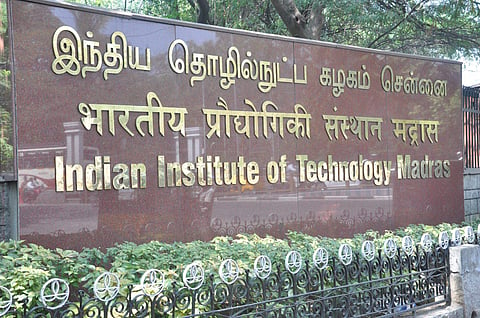

Indian Institute of Technology Madras has launched a dedicated ‘Industrial Energy Assessment Cell’ (IEAC) to help large and small industries reduce energy consumption through assessments as well as providing evaluated technological solutions. This service is being offered completely free of cost with assessments being done by research scholars, postgraduate and undergraduate students under faculty supervision.
The IEAC has already completed seven detailed assessments and 24 Walk-Through Assessments between January and July 2019 and has provided technological solutions that will help each industry obtain project savings between Rs 50 lakh and Rs 1 crore, if implemented. A couple of firms had already implemented the suggestions and accrued savings to the tune of Rs 20 lakh. The assessments were across sectors such as biscuit manufacturing, textile manufacturing and elevator manufacturers.
IIT Madras hopes to help establish similar cells in institutes of national importance such as other IITs and National Institutes of Technology (NITs), which can help industries in their respective regions. Establishment of IEACs is proposed to enable a structured, accountable and ongoing approach towards energy and safety in manufacturing.
Highlighting the benefits to Indian industries from this initiative, Prof Mahesh V Panchagnula, Dean (International and Alumni Relations), IIT Madras, said, “India is a net importer of energy. It is important that we address the problem from both conservation and efficiency improvement perspectives. This is an important step in that direction.”
This is an interdisciplinary effort with faculty from different engineering departments and economics involved. The IIT Madras Faculty working on this IEAC initiative include Prof Mahesh V Panchagnula, and Prof Satyanarayanan Seshadri, Department of Applied Mechanics, Prof Raghunathan Rengaswamy and Prof Shankar Narasimhan, Department of Chemical Engineering, Prof Srikanth Vedantam, Department of Engineering Design, Prof Krishna Vasudevan, Department of Electrical Engineering and Prof VR Muraleedharan, Department of Humanities and Social Sciences and Center for Technology and Polity, IIT Madras.
Speaking about other collateral possibilities through this initiative, Prof Raghunathan Rengaswamy said, “As more assessments are performed, this initiative will enable us to assess the potential for implementing cutting-edge data science and AI technologies for manufacturing excellence in SMEs (Small and medium-sized enterprises) in the near future.”
The IIT Madras team of students and a faculty will assess plant-wide energy and resource management system, undertake a detailed study of plant operation and energy usage and suggest means of optimising energy consumption that will result in considerable financial savings for the manufacturing unit, if it implements the suggestions.
Speaking about other benefits of this initiative, Satyanarayanan said, “In some cases where the manufacturing plant is very efficient, it is a learning opportunity for us. We also benchmark in which we identify existing efficient practices and spread it to other industries.”. These surveys also enable various stakeholders such as the government policy makers, industry trade bodies and research institutes like ours to come together for a roundtable discussion, thus promoting better understanding of the needs and bottlenecks in promoting energy efficiency in industries, opined Prof Muraleedharan.
The motivation for this project was the need for an efficient and agile manufacturing sector which is critical for India’s growth. However, there are significant inefficiencies in manufacturing sector. Foundries in Western countries accept less than one per cent rejection rate while Indian foundries operate at 8 to 10 per cent rejection rates.
Plant personnel will benefit by becoming aware of ‘Best Practices’ for energy savings. Each IEAC team consists of graduate and undergraduate students who also gain valuable industrial experience.
The team visit will conduct a one-day plant site and study electricity, gas/oil, air/steam (if applicable) and Other streams as well and discuss plant operation with top management personnel. It also sets up online sensors to log real-time data and energy and waste streams are analyzed. The findings are quantified, and typical issues related to this class of plants are listed. A final report is sent within six weeks of the visit with follow-up done eight weeks and six months after receipt of report.
This initiative will help IIT Madras fulfil one key aspect of its motto: “be of research and technological service to the nation.” The Institute intends to keep offering this service free of cost. Donors and industries sponsoring this initiative will have the first mover advantage in India, bringing university students and faculty in systemic contact with industry on the issue of energy efficiency improvement.
This is a socially responsible activity by servicing a dire need in India – energy conservation and awareness to industrial best-practices. The graduate and undergraduate students will get valuable industrial experience even while in an academic environment and will become future ambassadors for socially responsible manufacturing. Faculty involved will find relevance for their research in their local environment and teaching will be enhanced through real-life case studies that they can bring to the classroom
